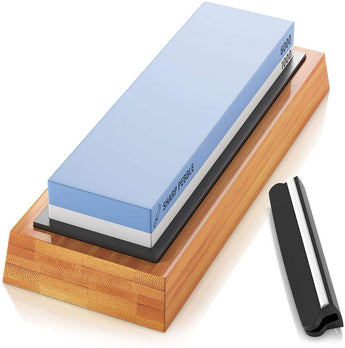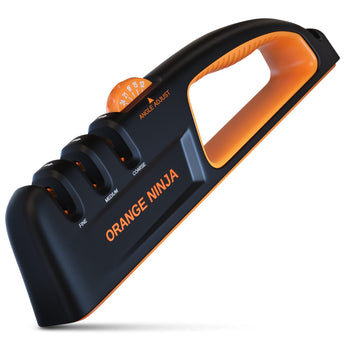As promised, we’re back with the second part of edge wear and tear series. Within this part, we will discuss how knife wear and tear is affected by the way you use your knife.
How knife use impacts wear and tear: Although the steel characteristics play a role in your knife’s lifespan; it is primarily the way that we use it that determines how long the knife will last. There are so many things that people do to cut shorts the edge’s life.
-
To start off, they don’t bother to store them properly in a block after use. They throw in their knives with other steel cutlery. The knife then jangles and that results in a damaged edge.
-
Using hard cutting boards made with glass or granite is a death sentence for your knife. It’s best to use wooden or plastic boards. They will be a lot easier on your knife’s edge.
-
People leave their knives in water for prolonged periods of time. This expedites the rusting process. Don’t leave them in the sink and dry them off immediately after cleaning.
-
Not every knife is meant to chop through bones yet many people will subject their knives to such brutal abuse on a daily basis.
Now we know that strength, toughness, and wear-resistance are the features that affect the steel knife’s structural integrity. But there are several functional factors that impact these 3 factors. Here they are:
-
Wear: It may sound obvious but quite a few of us overlook it. Wear or abrasion is the natural progression of the steel that comes with regular use of the knife. Although cutting and chopping contribute to wear; the bulk of it will come from when you sharpen your blades. No need to worry though; if you use your knives properly, it will take quite a few years before you will notice significant wear.
-
Rolling: When you push on a knife to chop or to cut, it puts an enormous amount of pressure on the edge. Over time this can cause the edge to roll, which is the main reason why you feel that the knife has gone dull. An easy way to prevent this is to regularly use a honing rod.
-
Chipping: This usually happens when a knife is frequently used to cut hard objects such as bones.
-
Corrosion: If you’re guilty of leaving your knives in water often then you shouldn’t complain that your knives don’t last. That’s because moisture creates the perfect environment for rust. For everyday kitchen use, we recommend using a stainless steel knife because they will handle corrosion a lot better than non-stainless steel knives do.
-
Technique: Putting in the effort to learn how to use your knife will go a long way in ensuring that your knife lasts for a long while. Be patient with it. Don’t bang it recklessly but focus on gliding it through while making an incision. Also, be gentle when working around bones or joints.





Enjoy your knife care tips. Good edges are expensive. It’s a shame some folks don’t give them good care.
sound advice, & I will follow them